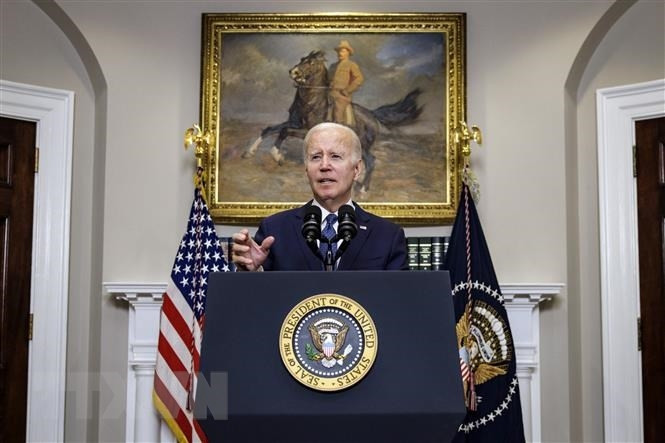President Biden signed the "Fiscal Responsibility Act of 2023" into law, suspending the debt ceiling to extend borrowing and keep bills paid.

US President Joe Biden announces the debt ceiling agreement just reached with House Speaker Kevin McCarthy, in Washington DC, May 28.
The White House announced that US President Joe Biden signed into law on June 3 on the public debt ceiling after weeks of controversy, aiming to prevent a catastrophic default.
Specifically, President Biden signed into law the "Fiscal Responsibility Act of 2023" suspending the policy of applying the public debt ceiling to extend loans and maintain payment of bills, thereby avoiding a default that could cause panic in the market, widespread job losses and economic recession, with consequences on a global scale.
The US House and Senate passed the bill earlier this week after President Biden and House Speaker Kevin McCarthy reached an agreement after intense negotiations.
According to the agreement, the two sides agreed to suspend the debt ceiling of 31.4 trillion USD for 2 years, until January 1, 2025; limit budget spending for fiscal years 2024 and 2025, accordingly in fiscal year 2024, 886 billion USD will be allocated for the defense budget and 704 billion USD for non-defense items.
Thus, non-defense spending is generally unchanged in fiscal 2024.
The two sides agreed to increase non-defense spending by 1% in fiscal year 2025.
In addition, the two sides agreed to recover unused COVID-19 funds; speed up the licensing process for some energy projects and increase eligibility for pro-poor programs.
Previously, on June 2, credit rating agency Fitch Ratings maintained the US's "AAA" rating on negative watch, despite the approval of the debt ceiling agreement.
Fitch acknowledged that reaching an agreement was a positive development, while the budget deficit will decline modestly over the next two years.
However, Fitch said that the continued disagreements over the debt ceiling and the last-minute suspension of the debt ceiling, as the US Treasury approached a scenario of defaulting on all its financial obligations, had undermined confidence in the US's ability to manage fiscal and debt issues.
According to VNA